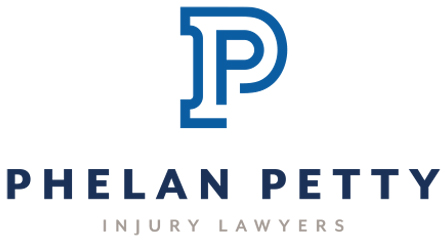Truck Litigation: Freight Broker Liability
Working as co-counsel with other national truck litigation firms, our firm won an important federal court ruling from the United States District Court in the Western District of Virginia, Roanoke Division, in the area of freight broker liability. The lawsuit was filed by three plaintiffs against the freight broker, C.H. Robinson Worldwide, Inc. We alleged that Robinson hired a fly-by-night tractor trailer company, Nova Express, to transport a load of detergent from El Paso to the Bronx. The truck driver was fatigued, had falsified his driver log and was driving on bad brakes, worn tires and a faulty suspension system. At about 3:00 a.m., the driver crashed through the guardrail on I-81 in Wythe, Virginia, causing the death of two people and severe injuries to a third.
Plaintiffs alleged that Robinson’s own records showed that on 16 occasions Robinson’s employees recommended that Nova Express be put on the “Do Not Use” list, and that over a three year period Nova Express’s two trucks broke down approximately 30 times – evidencing poor maintenance and financial instability. Additionally, publicly available information from the Federal Motor Carrier Safety Administration (FMCSA) website showed a poor safety record. The parties’ experts disagreed on the reliability of using the FMCSA;s “Behavior Analysis and Safety Improvement Categories” (BASIC) scores program as a predictor of the relative risk for which truck companies are more likely to be involved in a crash. Under FMCSA’s algorithm, Nova Express was categorized as a “high risk” motor carrier.
The trucking industry, including Robinson, engaged in an intense lobbying campaign attacking the FMCSA program. Despite the existence of numerous peer-reviewed studies supporting the reliability of the BASIC scores, a flawed 2014 GAO study was highly critical of the statistical underpinnings of the BASIC scores. In late 2015, Congress pass the FAST Act, which created a study of the BASICs and ordered FMCSA to take the scores down from public view.
Robinson moved for summary judgment on the grounds that: 1) the tort of negligent hiring of a motor carrier by a freight broker is completely preempted by 49 U.S.C. 14501(c)(1) of the Federal Aviation Administration Authorization Act; 2) plaintiffs’ claims are barred by conflict preemption, as Congress questioned via the FAST Act the reliability of the BASICs; and 3) plaintiff’s expert shoudl be excluded, and there is no expert testimony to show the standard of care required of brokers.
The Court denied Robinson’s motion and granted in part plaintiffs’ motion based upon Daubert to exclude Robinson’s expert, who was precluded from testifying about the standard of care. The opinion may be found in Mann Adm’r v. C.H. Robinson Worldwide, Inc., C.A. No. 7:16-cv-102, Doc. 71, filed 7/27/17 or upon request from Michael Phelan at mphelan@phelanpetty.com. The plaintiffs had settled with the trucking company in a earlier case, and two of the three plaintiffs settled with Robinson shortly after the Court’s opinion was published.
Michael Phelan is a Virginia trial attorney who practices with a special focus on traumatic brain injury (TBI) cases, pharmaceutical and medical device claims, product liability cases, and truck accidents. Michael’s peers have consistently recognized him for his excellence as a trial lawyer, and his clients have praised him for his commitment to deep research, his outstanding communication skills, and his sincerity and dedication.
